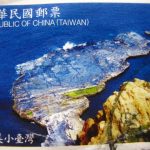發布於 09月14日2020年
3.1K
【新觀點|洪偉Azim:台灣應思考使用 vTaiwan 來處理數位身分證的爭議。】
注目焦點
- 【藍晒圖|〈吳展良:「孫中山思想:內涵演變與歷史實踐〉搶先看。】11月12日2025年
- 【藍晒圖|〈張智瑋:「數位時代的巨浪,國民黨如何因應?」〉搶先看。】11月07日2025年
- 【藍晒圖|〈施威全:「民族統戰話語,國民黨如何接招?〉搶先看。】10月21日2025年
- 【藍晒圖:重構國民黨黨務改革&人才甄補搶先看。】10月07日2025年
- 【讀者投稿|胖橘約翰:綠媒為何不打鄭?國民黨的死亡預知紀事。】10月05日2025年
- 【藍晒圖|〈吳展良:「孫中山思想:內涵演變與歷史實踐〉搶先看。】
最多人瀏覽
關注我們
圖文藝廊
This error message is only visible to WordPress admins
訂閱我們
















當我們都是這個社會的一份子,監督以及衡量政府政策承諾的可靠性與正當性,自然而然地便是身為公民的責任。
當台灣熱中於選舉,我們只記得「凍蒜」的激情,而不是政治人物所承諾的執政成效時,選舉的激情本身便會成為諷刺的背景,並且赤裸裸地反映出臺灣民主的不完整與不成熟,這便是為什麼公民更應該藉由隨手可得的工具發揮其身為民主社會的一份子的影響力。
只要有一台網路穩定的電腦,「vTaiwan」 便會是很好的選擇,vTaiwan 是一個讓政府部門、專家學者以及大眾能集結一體並商討特定議題的線上諮議平台,此平台希望能夠讓持有不同觀點及看法的相關執政單位與公眾成員聚在一起,並藉此開啟建設性對話,討論不同的議題,而最終希望達成共識。
舉例來說,2015年的Uber條款爭議透過vTaiwan的四階段處理機制(提案討論/意見徵集/會議/決策),可有效地凝聚眾人意見、找出問題,Uber與計程車兩方也成功達成了共識。
首先在「提案討論」階段,參與者需要點出共同的目標與會議執行上會遇到的困難,而其他的利益相關人士也會在此階段加入。討論過程中,會需要搜集與議題相關的資訊與實例,此外, 為了避免溝通上的不便,法律術語以及專有名詞都會被翻譯成所有參與者都能理解的白話。
再來進到「意見徵集」階段,此時也需要使用另一個線上平台 Pol.is,它是2014年由美國新創公司Polis所開發的開源工具,希望促進使用者可以理性表達看法。其主要功用是在「提案討論」階段後統整參與者提出的想法及意見,Pol.is 將使用者對於意見的回應,例如「通過」、「不同意」、「同意」或發布的短文,透過演算法轉換成象限式的分群圖表,更能夠輕易地發現與比較彼此的立場。
在進到「會議」階段前,意見優勢群體和意見相對弱勢的群體(其群體內的一半人數以上)必須要先達成有力的共識。假設60%的參與者同意一個想法,另外40%的相對少數參與者至少要有一半以上的人數也支持此想法,意味著想法最終必須被80%的全體討論者所同意,這樣參與者就必須重新審視並細修任何過於偏激的立場。
接下來,在「會議」階段中,顧名思義,專家學者、政府相關部門的各方代表和現有參加者全部都會被受邀參與一個公開會議,在先前「意見徵集」階段所統整的一切資訊也將在此會議中被使用,以望藉由討論,能產出具體的提案,除了實體進行,會議也採同步直播並有逐字稿的紀錄,提供機會讓線上參與者得以發言和詢問,也讓他們能夠一起審查意見並促進全體公民的互動溝通。最後,在「決策」階段,提案將會被寫成法案,並等待政府端的參考和採用,以Uber條款爭議為例,蔡政府當時便採用了多項vTaiwan提出的方針,包含乘客車費一率以跳表計算,取消浮動費率、uber業者只能載運透過app平台叫車的乘客…等。
除了Uber條款,還有其他議題像是金融監理沙盒(金融科技發展與創新實驗條例草案)和禁止散布性私密影像,以上這些都是透過多方的交流及討論而有成效的案例,有鑑於這些成功,我們為何不利用vTaiwan繼續針對臺灣社會上重要的議題發表看法呢?舉例來講,內政部希望在十月開始推行數位身分證,但其實針對此政策之爭議的對話主要還是由大眾單方面主導,一些公民社會團體,像是台灣人權促進會、財團法人民間司法改革基金會以及臺灣受試者保護協會都有提出看法和批評,但是現今僅有學者專家和公民團體的反對意見,大眾和政府的對話並沒有正式展開。
數位身分證議題涉及大眾的權益,甚至包含自由權、隱私權等,如果政府將個人資訊集中在一個資料庫裡,是否會使個人資訊更容易被未經允許的團體惡意竊取,暴露個資,侵犯隱私權的問題呢?再者,內政部也尚未解釋將來在數位身分證上會顯示什麽類型的個資細節,容易造成模糊的理解。
因此,公民在政策實施前的參與和積極對話非常重要,再加上目前針對此議題,仍缺乏一些在網路安全上專業的諮商意見,內政部目前也拒絕修改數位身分證上路後其相對應的法律措施,如果透過vTaiwan的操作,大眾和政府間的溝通隔閡絕對有辦法被修補,而以上這些問題,也將能一一被討論,尋求解決辦法。
這一切,不單只需要社會大眾的參與,面對其他類似的議題,政府也更應該鼓勵民眾發聲,同時也應扮演好聆聽者的角色,以讓民主充分展現它的影響力。
English version for reference:
BEING PART of a society, providing oversight, and evaluating the reliability and validity of campaign promises remains the responsibility of citizens. Our democracy is incomplete when the only memorable chant from a campaign rally is “frozen garlic” and when political slogans become a symbol of repetition that do not live up to their physical implementation. This is why citizens should take advantage of tools at their disposal to amplify themselves as meaningful stakeholders in society.
If you find yourself with a computer with decent Internet, vTaiwan is a tool accessible to everyone. vTaiwan is an online-offline consultation platform that allows ministers, experts, academics, and the public to come together to deliberate on certain issues. The philosophy behind the platform is to bring together relevant parties and members of the public with differing opinions.
By doing so, the platform offers a new avenue for participants to have constructive conversations, with the hopes that this can allow for building consensus digitally on a variety of issues. For example, in 2015, with the controversy surrounding Uber regulation, vTaiwan was able to effectively address the challenge through its unique four-stage mechanism (Objective/Reflective/Interpretive/Decision Stage), and reach a consensus with taxi drivers in Taiwan.
In the objective stage, participants start by identifying common objectives, challenges, and other stakeholders involved. During this process, information and facts necessary to interpret the issue are gathered. Furthermore, to eliminate any potential barriers, technical difficulties such as understanding legal jargon will be raised in this stage, and professional terminologies are then translated into a vernacular language comprehensible to all stakeholders.
Second, in the reflective stage, a platform known as Poli.is is used. This primarily serves as a medium to collect the ideas and opinions of the participants in the post-objective stage. Through user-generated responses such as to pass, disagree, agree, or post a 140 character tweet in response to other users’ suggestions, Poli.is uses visual constructions to demonstrate existing patterns, allowing users to contrast and locate their positions with others in a given issue.
To move to the interpretive stage, the majority group and at least half of the minority group —would have to accept the established consensus. If a majority group of 60% of participants agrees, half of the minority group of 40% will also have to agree with the consensus, meaning that 80% of the total participants will have to agree. This forces participants to refine and reformulate any stances that are overly aggressive.
Third, in the interpretive stage, academics, experts, representatives from relevant ministries, and active participants on Poli.is are invited for a public meeting. The meeting is built upon figures, statistics, and knowledge collected in the reflective stage to formulate concrete proposals for discussion. Meetings are also live-streamed and transcribed, so participants online may also pitch in their opinion or ask questions digitally, which allows citizens to scrutinize and engage with actors on the other side.
Lastly, in the decision stage, proposals from the interpretive stage are drafted into a bill and made ready for the government to ratify. With the issue of Uber regulation, the Tsai administration adopted most recommendations such as taxis not having to be yellow, having the standard taxi fare apply to all passengers, that taxis which operate using apps can only pick up passengers designated through the application, and etc.
Apart from Uber regulation, other issues that have been discussed on vTaiwan include the FinTech sandbox act, which allows the financial industry to conduct small-scale experiments that are regulated by the government; and the subject of Non-Consensual Intimate Images (NCII), with measures taken so that victims could participate in the discussion without the need to reveal their identities. These are past examples that have proven to be successful through the platform.
So why not continue giving voice to issues pertinent to our society? For instance, regarding the rollout of the new electronic ID (eID) that the Ministry of Interior (MOI) is attempting to implement by October, at the moment, dialogue between the government and the general public has primarily flown under the radar of the public. Criticisms have been raised by civil society groups, such as the Taiwan Association for Human Rights, Judicial Reform Foundation, and the Human Subject Protection Association, among others. But apart from objections by academics and Taiwanese civil society groups, formal dialogue between the general public and government has yet to be established.
Civic participation regarding the eID issue is particularly important. Unlike Uber regulation, FinTech sandboxes, or NCII, this is an issue that encompasses most, if not all of the citizenry as a whole. And in the case of the eID, citizens’ lack of participation has a wide array of ramifications for their civil liberties.
By allowing the government to centralize your data in one single database, you run the risk of a privacy breach, which could potentially expose your information to unsolicited parties with malicious intent, impeding your right to security. Moreover, the government has yet to provide a detailed account of the type of information that will be included in the eID, shrouding the entire matter with ambiguity. Active input from the citizenry is highly important regarding this issue, since this affects the privacy of citizens and participation will help safeguard one’s interests in the long-run when laws are being drafted, since a collective opinion from the vTaiwan process would be taken into account.
vTaiwan’s involvement could prove crucial in bridging this gap between the public, civil society, and the government regarding the eID controversy. Concerns over the lack of consultation from experts, government’s incompetence in the field of cybersecurity, and the MOI’s refusal to amend the law for the implementation of the eID are all valid concerns.
But this could be properly addressed through vTaiwan’s stakeholder engagement process. With regard to the issue of Uber regulation, taxi companies, drivers, and users of both taxi cabs and Uber engaged in the deliberation processes through the use of Pol.is and in-person deliberative discussions. In the end, concessions were made by all parties, resulting in a win-win situation where taxi drivers promised to elevate better service and Uber promised to work within the framework established through the deliberation process. And, again, it should also be noted that the Taiwanese government did ratify most recommendations on the issue of Uber regulation.
Anyone willing to contribute and scrutinize proposals is capable of doing so by hopping on Pol.is. The strength of democratic systems lies within its ability to call for self-correction. The government should adopt and encourage a similar approach to discuss issues such as the eID with the public. Participation and engagement to shape clear policy objectives and provide legal reports with one’s interest as a citizen in mind can allow for clarity on these contested issues.
Reference: https://www.google.nl/amp/s/www.bbc.com/news/amp/technology-50127713
更多 公共時評
【藍晒圖|〈吳展良:「孫中山思想:內涵演變與歷史實踐〉搶先看。】
【藍晒圖|〈張智瑋:「數位時代的巨浪,國民黨如何因應?」〉搶先看。】
【藍晒圖|〈施威全:「民族統戰話語,國民黨如何接招?〉搶先看。】